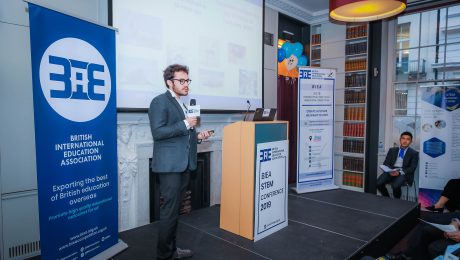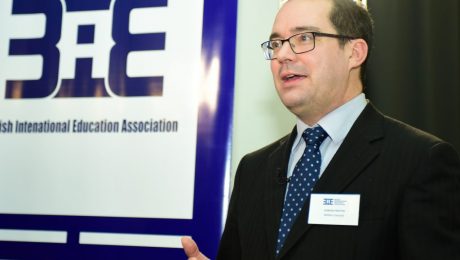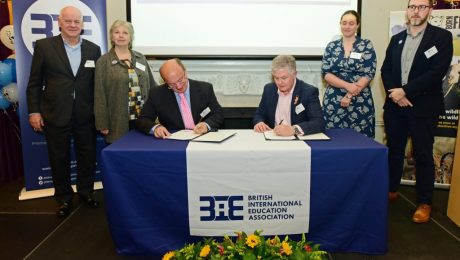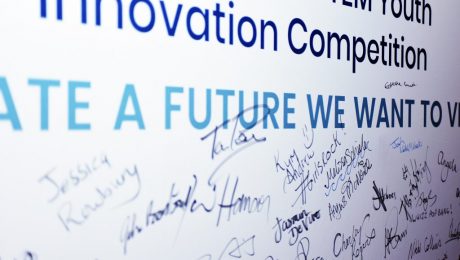The future of the world belongs to young people
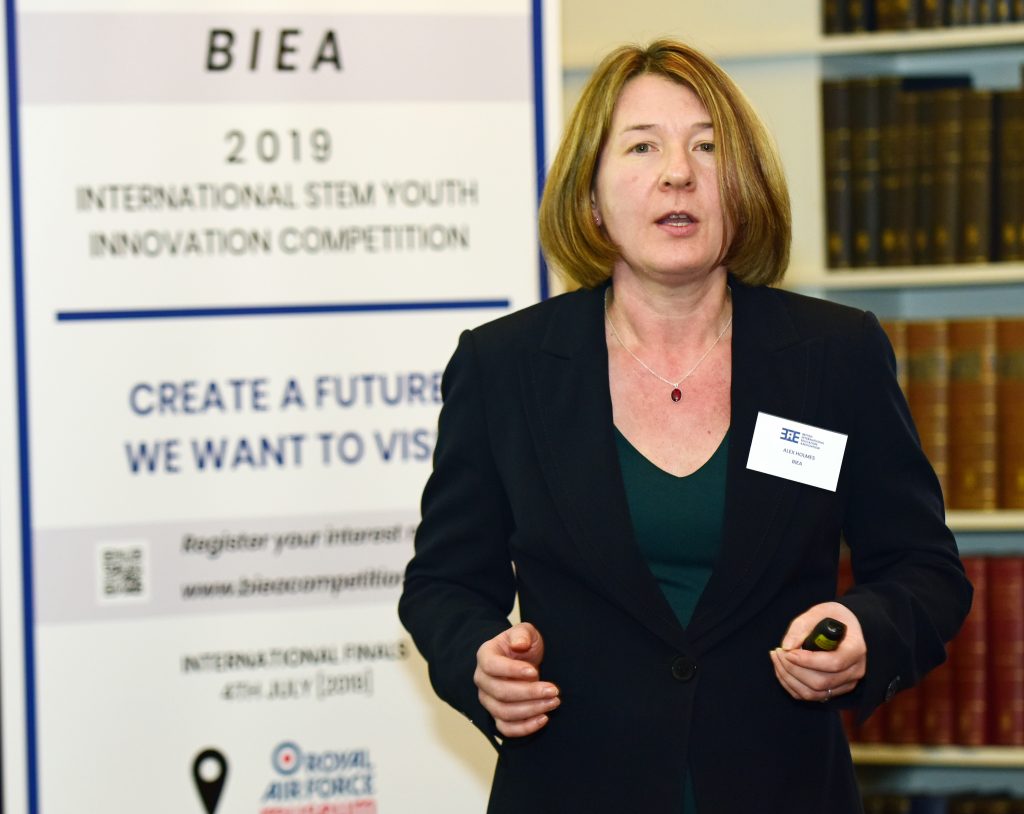
At the first STEM Conference of the British International Education Association (BIEA), Dr. Alex Holmes, the designer of the BIEA International STEM Youth Innovation Competition and Head of STEM, gave a presentation entitled: “The Future is Theirs”. She raised some very thought-provoking questions on how we might stimulate and cultivate STEM enthusiasm among young people.
Alex pointed out that one of the potentially serious problems for the future of STEM professions is the aging of current STEM professionals; this along with declining numbers of young entrants means that potential numbers are not enough to meet needs of future markets; therefore, society needs to cultivate students’ passion in STEM subjects. A further issue however is that for many students, the focus on theory and academic achievement in STEM subjects, and a perceived view that STEM subjects are ‘difficult’ or ‘elite’ subjects is also leading to a further decrease in numbers of students taking the subjects.
Taking these issues into account, it makes sense that educational institutions and organizations work together towards breaking down stereotypes of STEM subjects and stimulate an enthusiasm and passion, which might lead to an increase in uptake. Giving students the opportunity to think critically, consider novel solutions to problems, and accept new challenges are good ways to inspire young people’s STEM enthusiasm. Alex has pointed out that these form the fundamental rationale of the BIEA 2019 International STEM Youth Innovation Competition.
The 2019 BIEA STEM Competition invites young people (between 9 to 17 years old) from all over the world to form teams and work together to conceptualize how drone technology could be used to save endangered animals. The competition combines the application of STEM skills to help deepen innovative thinking in young people, whilst cultivating their ethical and environment outlook toward our planet. The entire competition process not only encourages young people to think about STEM and related careers, but also develops their transferable skills: problem-solving, communication and team-working. These capabilities are considered essential skills for positively engaging with the industrial, academic and employment market as the young people progress from school.
- Published in News
Help create a future we want to visit
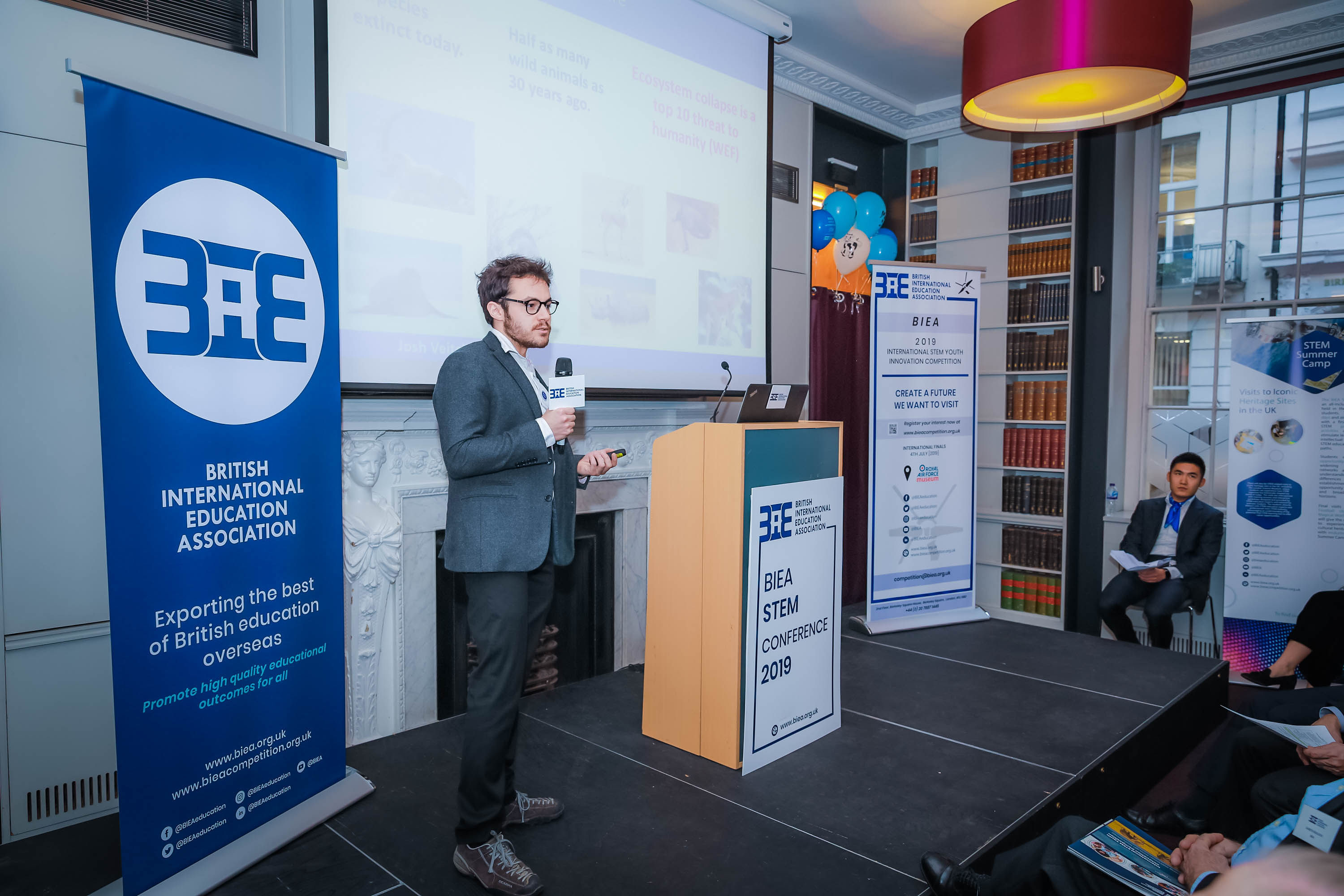
How can technology innovations help protect animals? In the past century alone, over 90 known species of animal have become extinct and the numbers rise every day that passes. The numbers of animal species in the wild are now only half of what they were 30 years ago and many species are now highly endangered. This collapse of fragile ecosystems is now one of the top ten threats facing humanity.
We know that the advancement of science and technology can improve the quality of life for humans, but technological innovation can also play an critical role in protecting the environment. This was the focus of the 2019 BIEA STEM Conference and is the rationale behind our 2019 International STEM Youth Innovation Competition.
How can technological innovation work towards protecting animals? We had the pleasure of listening to Joshua Veitch- Sharing, Researcher in the Liverpool John Moore University at our conference. In his presentation ‘Astro-ecology: astrophysics meets conservation biology’ he explained how the current crisis of wild animal populations comes not only from the deterioration of their natural environments, but also the malicious hunting done by people. He pointed out that although important work is done by anti-poaching rangers, there are limits to what a few people in the field can achieve. Joshua explained how using drones can assist people in the battle against poachers.
Drones can be used for identification of animal species and give meaningful insights into their population numbers and movements, especially using the high-altitude, infrared imaging function which provides data for counting animals both during the day and at night. He also described how the impressive infrared sensors on a drone can help anti-poaching rangers by detecting and pinpointing the position of hunters at night, allowing the rangers to .target their resources to the appropriate areas.
Joshua’s work gave us insight of how the diverse use of drones can support the work of animal protection officers and researchers. With the launch of our 2019 International STEM Youth Innovation Competition, ‘Fighting Extinction via Drone Technology,’ young people from all over the world now also have the chance to design and develop their own creative ideas for using drones to help protect endangered animals. Register now at https://bit.ly/2DIIGup and spread the word!
- Published in News
Chinese official praises British approach to STEM
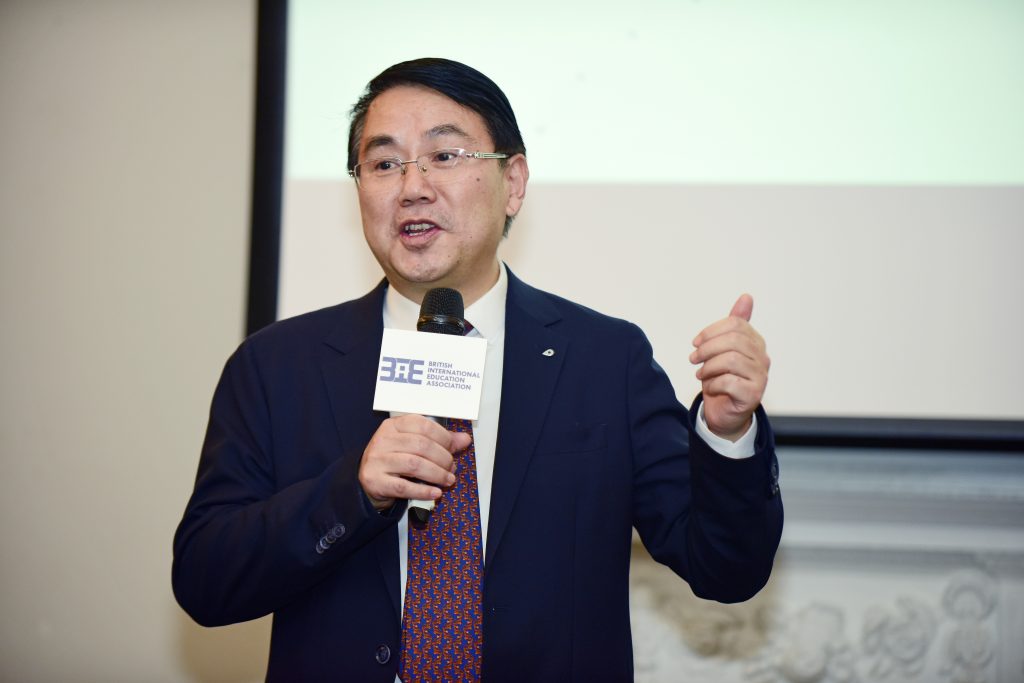
The Embassy of the People’s Republic of China showed its support for BIEA’s efforts to combat the growing gap between the number of STEM students graduating and the growing number of STEM jobs needed in vital industries.
Minister Counsellor for Education Wang Yongli had the opportunity to speak in front of an assembled audience of international journalists, educators, government officials and STEM experts. He spoke of the traditional strength that China had in terms of STEM education and engagement with its young people. He related an old saying that if you can master chemistry you can master the world. He then followed this by drawing attention back to the reason for the event as a whole by stating that in the twenty-first century this is no longer enough to succeed. He praised the UK’s approach to STEM and in particular the more creative and innovative aspects that were missing from the Chinese approach. He finished his speech with a wish for closer cooperation between China and the UK in engaging young people in STEM.
This need for creativity has been reflected in the desire for Chinese educators to learn from British examples, particularly in early-years education which is a key aim of the BIEA E-league program. With China representing a formidable pool of global STEM talent, BIEA looks forward to the entry of Chinese teams into the 2019 BIEA International STEM Youth Innovation Competition to meet peers from around the world, make friends and swap ideas and innovations.
- Published in News
How to engage young people in STEM
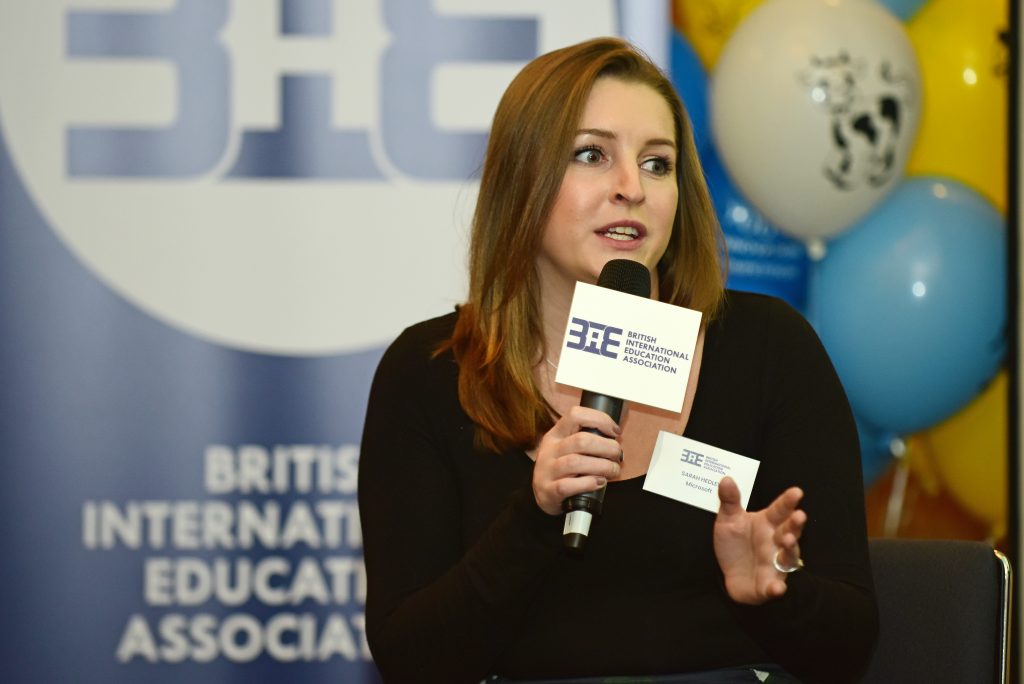
Sarah Hedley, the National Skills Lead for Microsoft in the UK took part in the panel discussion on how to engage young people in STEM education during the BIEA STEM Conference on the 15th of January.
The event aimed to promote STEM education to young people and try to draw attention to the skills gap that is developing between the number of STEM graduates and the growing number of STEM jobs that are needed to sustain the economy. Sarah’s position at Microsoft, a key player in tech education and innovation around the world meant that she had some key insights as to the challenges faced by young people when engaging in STEM. In particular, Sarah focused on female participation in STEM and how at the age of 7 girls are keen to take part but by the age of 12, they are far less willing. The panel suggested increasing access to female role models in STEM and smashing preconceptions across STEM could lead to increased diversity which would benefit society as a whole.
Sarah also talked about how companies like Microsoft and the BSA, among others, use their resources to make STEM fun by coming into schools and teaching STEM skills in a way that young people find relatable and engaging. This was widely accepted by the panel as a key way to engage young people in subjects that traditionally are seen as fairly dry.
- Published in News
British Council shows support for BIEA
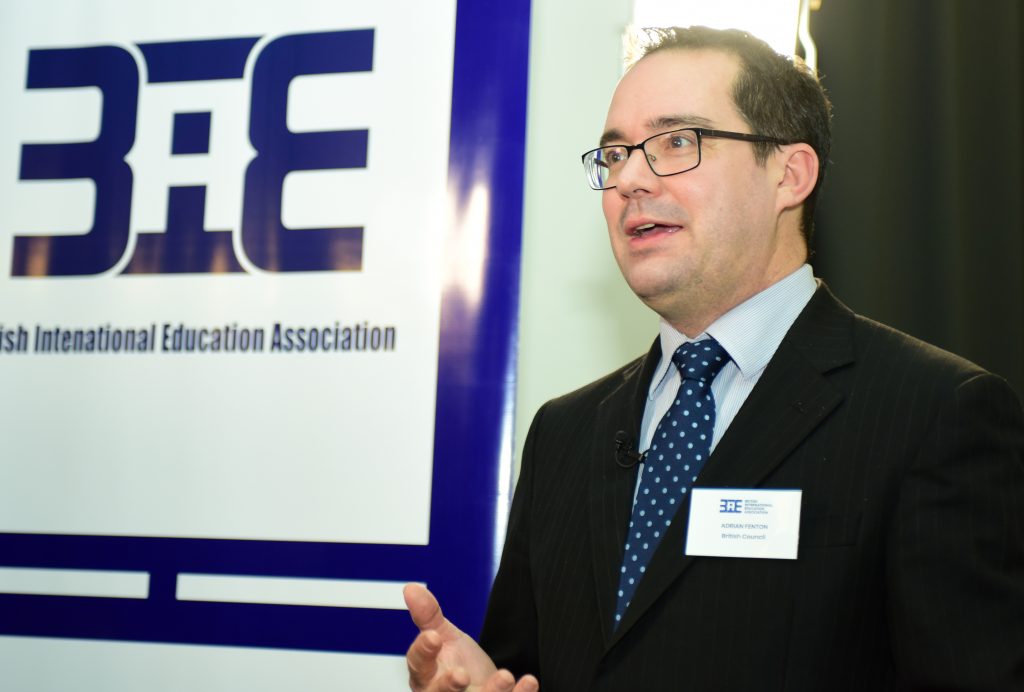
The British International Education Association was pleased to host members of the British Council during its first STEM Conference on the 15th of January 2019. BIEA has a long history of working closely with the British Council, sharing the goal of exporting the best of British educational practice overseas.
Science Advisor: STEM and Public Engagement, Adrian Fenton represented the British Council during the panel discussion moderated by New Scientist Magazine on how to engage young people in STEM. It was widely agreed that young people could be encouraged into STEM education through making the perception of the subject fun through outreach and practical education that is supported by organisations such as the British Council around the world. It was also agreed that young people needed to be aware of the multitude of career options that were open to them, outside of traditional STEM paths and that similarly, access to role models could help drive up STEM engagement.
BIEA looks forward to working especially closely alongside the British Council in China though 2019 as it launches its flagship E-League and S-League programmes in the country. BIEA is confident that the global expertise that the British Council brings to the table when it comes to promoting and sharing British values and education practices around the world will be invaluable for exporting BIEA educational programs to Chinese educators.
- Published in News
BIEA hosts Department for International Trade
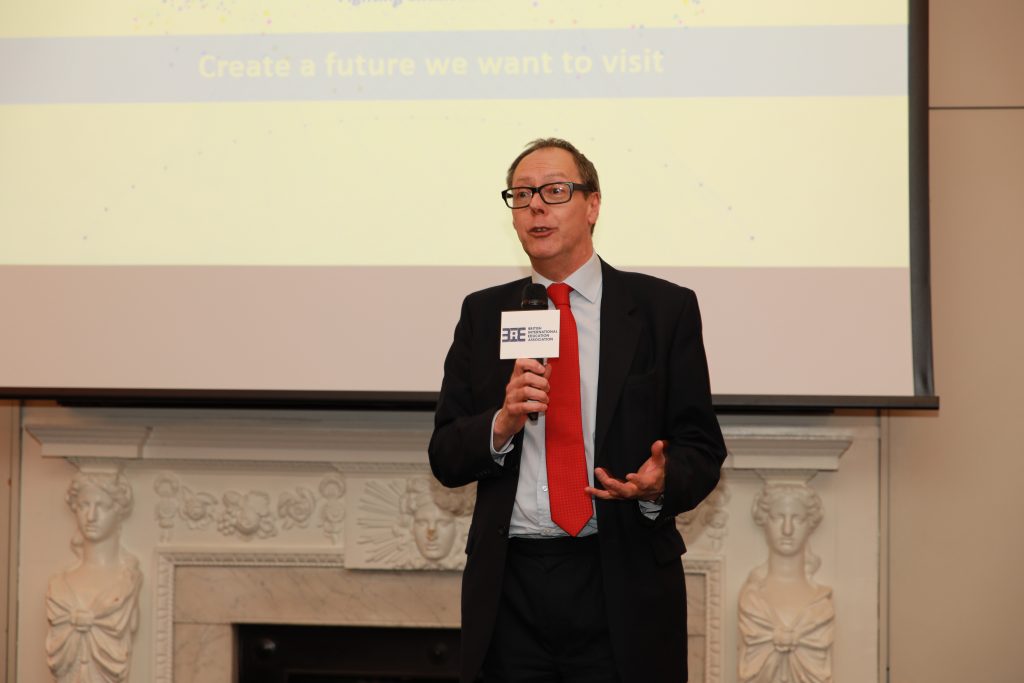
On the 15th of January 2019, the British International Education Association hosted several members of the Department for International Trade at its first STEM Conference. Aiding BIEA’s to export the best of British education overseas, the Department for International Trade has been set up specifically to deal with British global trade in whatever environment post-Brexit Britain finds itself in.
Head of Education Geoff Gladding took the opportunity to say a few words before the official launch of the 2019 BIEA International STEM Youth Innovation Competition. He thanked BIEA for helping British education to leave a footprint around the world and continuing to boost the prestige and value of this crucial element of British soft power, particularly in the highly topical STEM field.
BIEA looks forward to continuing to deepen and expand its relationship with the Department, particularly when it comes to exporting the best of modern British educational practice into China’s booming education sector. 2019 will see the official launch of BIEA’s flagship E-League and S-League programmes in China and BIEA looks forward to cooperating with the Department for International Trade in promoting these programmes to Chinese educators throughout the country.
- Published in News
BIEA forms partnership with the Born Free Foundation
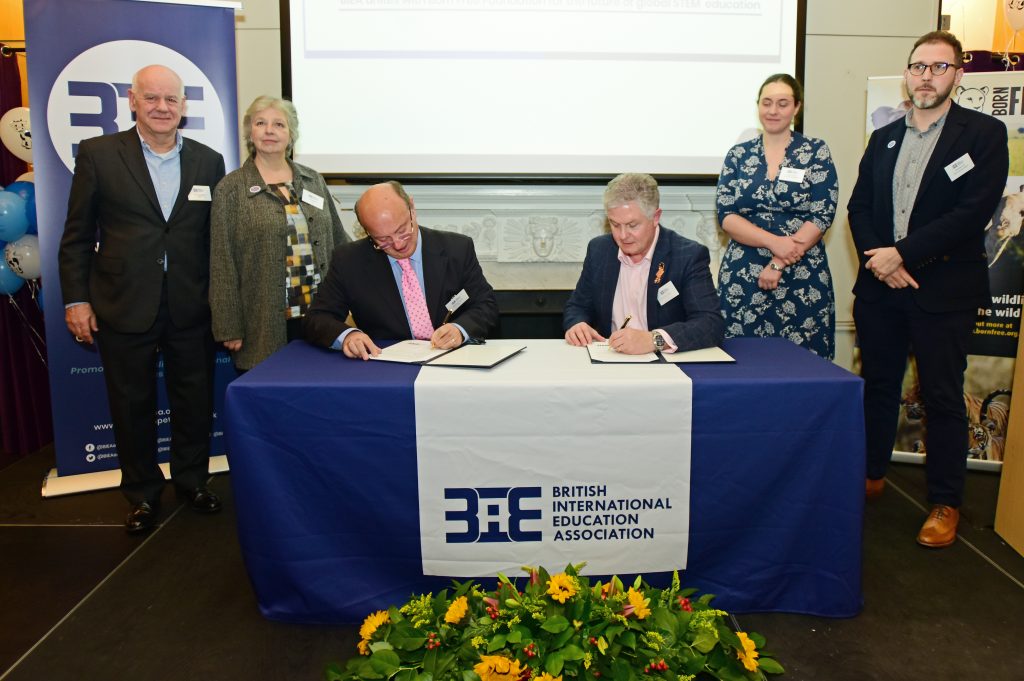
The British International Education Association united with the Born Free Foundation to sign a partnership contact during the launch event of the second annual BIEA International STEM Youth Innovation Competition on the 15th of January 2019 at the Royal Institution in London.
With its background as a leading voice for the protection of animals in the wild and the rehabilitation of those who have been through captivity, the Born Free Foundation is a natural choice of partner for advising on the wildlife specific angle of the 2019 competition and beyond. BIEA hopes to inspire young people from around the world to work together to use technology and STEM skills to solve pressing global problems such as the extinction of vulnerable animal species. The Born Free Foundation provides an invaluable source of expertise when it comes to the application of technology to monitor and protect endangered animals around the world.
The cooperation agreement between these two organisations ultimately aims to help the education of young people across STEM disciplines and to promote the protection of wildlife on a global level. In 2019 BIEA and the Born Free Foundation will be producing the BIEA International STEM Youth Innovation Competition with the theme of fighting extinction through technology. Students will be challenged to use drone technology to find a way to help monitor and protect endangered species around the world. The competition officially launched after the two organisations signed the formal partnership agreement and the registration phase will stay open until the 31st of March 2019. BIEA is proud to announce that it has already received applications from 76 teams representing over 19 countries and regions through its pre-registration process.
BIEA believes that cooperating with the Born Free Foundation will add incalculable value to the 2019 competition and add some of the world’s leading wildlife experts to judge the feasibility of work created by the students. BIEA looks forward to working closely with the Born Free Foundation and to continue to deepen and strengthen their relationship into the future.
Can technology save a species from extinction? Get involved in the 2019 International STEM Youth Innovation Competition and find out. For more details, please visit: www.bieacompetition.org.uk
About the Born Free Foundation
Born Free’s mission is to ensure that all wild animals, whether living in captivity or in the wild, are treated with compassion and respect and are able to live their lives according to their needs. Born Free opposes the exploitation of wild animals in captivity and campaigns to keep wildlife in the wild.
Born Free promotes Compassionate Conservation to enhance the survival of threatened species in the wild and protect natural habitats while respecting the needs of and safeguarding the welfare of individual animals. Born Free seeks to have a positive impact on animals in the wild and protect their ecosystems in perpetuity, for their own intrinsic value and for the critical roles they play within the natural world. For more information about Born Free please visit www.bornfree.org.uk.
- Published in News
BIEA 2019 International STEM Youth Innovation Competition officially open
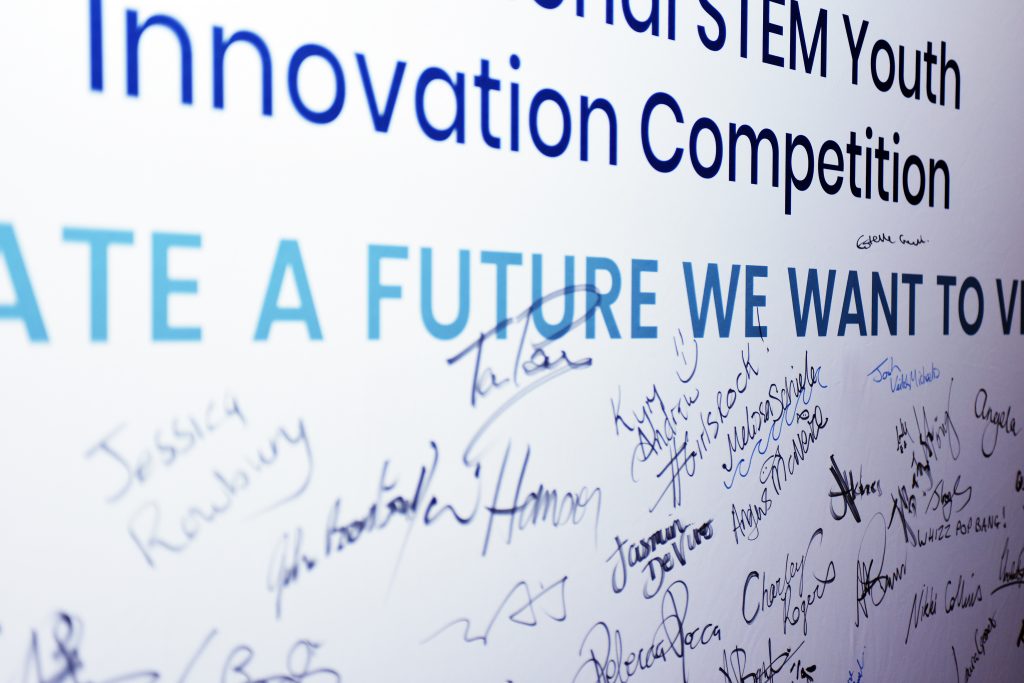
On the 15th of January 2019, the 2nd annual International STEM Youth Innovation Competition was officially opened at a ceremony at London’s prestigious Royal Institution (Ri). The British International Education Association (BIEA) alongside its partner, the Born Free Foundation (BFF) announced the competition before an audience made up of educators, STEM professionals, members of industry and invited dignitaries. Working with the support of the British Science Association (BSA), the Royal Institution (Ri), Engineering UK and the Royal Airforce Museum (RAF Museum), BIEA called out for students around the world to get involved and sign up to take part.
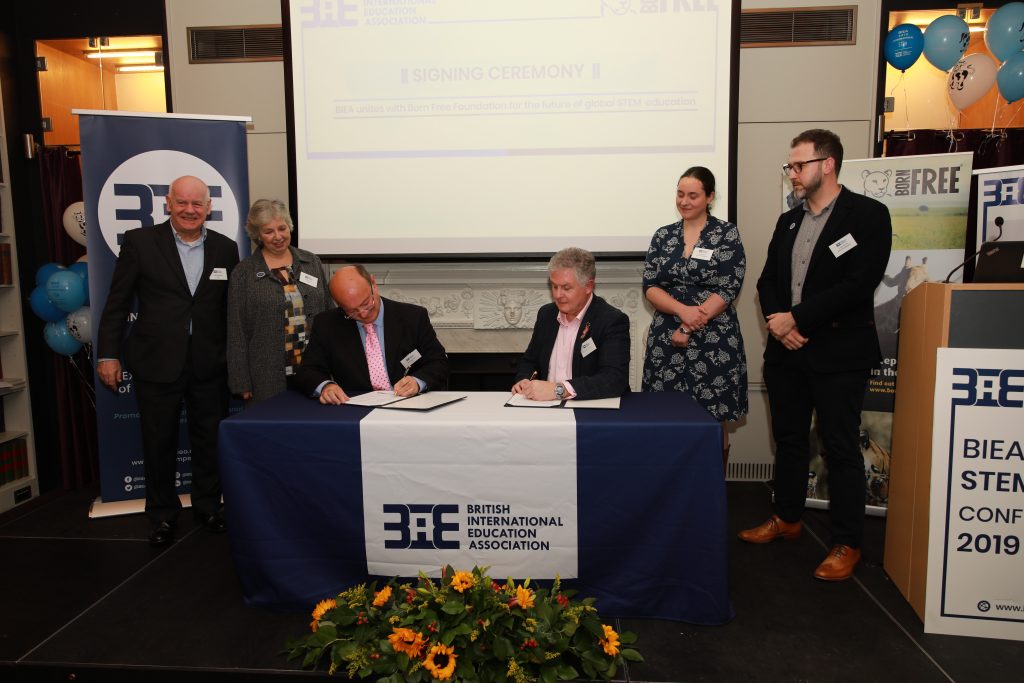
Participating in the forum were prominent organisations such as the Department for International Trade (DiT), Embassy of China, the Born Free Foundation, Independent Association of Prep Schools (IAPS), New Scientist, Zoological Society of London (ZSL), the British Council, Microsoft, Tata Consultancy Services and more. Nearly 20 media outlets attended the conference including the BBC, China Daily, National Geographic, The Week, Computer Weekly and the European Times.
The conference featured presentations by Dr. Joshua Veitch-Michaelis (researcher) on machine learning and drone technology and its applications to wildlife observation, Dr. Alex Holmes (Head of STEM) from BIEA on how to teach STEM skills, Melissa Schiele on the use of water landing drones and marine conservation and final presentation by Dr. Liz Greengrass (Head of Conservation) and Howard Jones (CEO) on the work of the Born Free Foundation and their use of technology in conservation. The second half of the event featured a panel discussion based around how to engage young people in STEM careers and featured Sarah Hedley (National Skills Lead) Microsoft, Dr. Shaun Fitzgerald Director of the Royal Institution, Jane Dowden (Education Innovation Manager) from the British Science Association (BSA) and Adrian Fenton (Science Advisor: STEM and Public Engagement) from the British Council. The discussion was moderated by Penny Sarchet (News Editor) New Scientist Magazine. The general consensus of the panel was the STEM outreach activities from organisations like Microsoft, the Ri and the BSA (amongst others) have had a positive impact in allowing young people to have fun whilst they engage with role models from industry and finding out about STEM careers in the real world. It was generally agreed that the fun part of STEM school-based activities should be recognised as translating into potentially ‘fun’ careers for those with a STEM background. The panel also agreed that parents and teachers needed to be kept updated with the eclectic mix of jobs and careers that come with a STEM background – careers that are not, in the words of Jane Dowden, “just teaching and research” for science graduates. Finally, it was agreed that alongside inspiration, activities should also encourage aspiration for young people to engage with STEM opportunities.
The theme of the 2019 competition is fighting extinction through technology and aims to inspire students around the world to use their STEM skills to solve global problems. With Bornfree Foundation as BIEA’s partner in Over 73 student teams from 17 countries have already pre-registered for the 2019 event and BIEA looks forward to welcoming even more as the registration phase will continue until the 31st of March 2019.

The competition was officially launched after a speech by Geoff Gladding, Head of Education at the Department for International Trade who thanked BIEA for helping British education leave a footprint around the world. Second, to speak Wang Yongli, Minister Councillor for Education at the Chinese Embassy who spoke about the difficulties encountered by the Chinese approach to STEM and how to improve it through creativity, he hoped that the competition would provide an opportunity for young people from the world including China to better engage in STEM and build new friendships. Finally, both Mr. Gladding and Mr. Wang took part in the final ribbon cutting ceremony in which BIEA STEM Chair David Hanson announced the competition officially open alongside Gareth Bullock (President of BIEA), Laura Gosset (Head of Education) from the Born Free Foundation and Andrew Holmes OBE.

BIEA received a fantastic reaction across its social media channels including Twitter, Instagram and Facebook with support coming from The Week Junior, Science + Nature Magazine and guests including ex-MP Neil Carmichael and STEM Learning Regional Lead for London & South-East Ajay Sharman.
BIEA hopes to nurture STEM skills and passions in students globally to tackle the ever-growing skills gap between the number of STEM graduates and the number of STEM jobs that need to be filled. With a majority of global economies investing heavily in STEM education and related industries, it has never been more important for young people to get involved and build a passion for STEM. Working specifically with drone technology, the competition will help students build an appreciation for STEM as they work to solve the pressing issue of how to protect endangered animals from the threat of extinction. Students will work across a multidisciplinary set of challenges between the launch of the competition and the final event on the 4th of July 2019, including report writing, design and construction, presenting, editing, research and technical skills. Through the competition, students will increase their teamwork, independent research and critical thinking skills as well as see the applications of STEM outside of the classroom.
Students will have the chance to meet their peers from around the world at the final event which will take place on the 4th of July at the RAF Museum in London. They will have the chance to show off their work to expert judges and members of the public as well as to fly drones through an obstacle course and be in with a chance to win the £5000 grand-prize. All students taking part will also be eligible for the silver CREST Award from the British Science Association.
Can you save a species through technology? Sign your team up today and create a future that we want to visit.
At the time of publication, 73 teams from 59 schools had successfully pre-registered from 17 countries.
- Published in News


